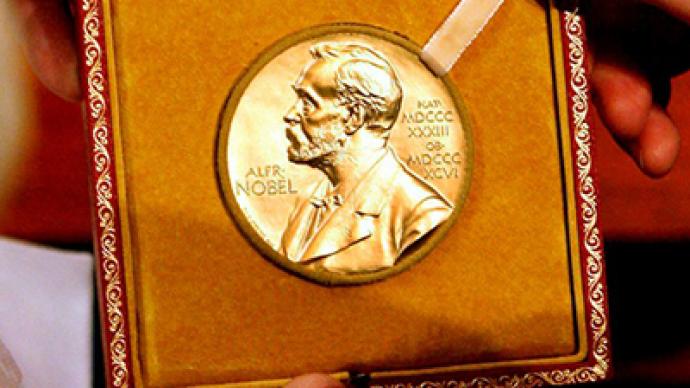For the first time in more than 70 years, the Nobel Peace Prize will not be received by its winner or a representative.
It is due to be given to Chinese laureate Liu Xiaobo for his work on human rights and political reform, but the pro-democracy activist is currently serving an 11-year sentence for subversion. Chinese authorities have banned not only him but also his wife from attending the ceremony in Norway on Friday. Organizers will be forced to leave his chair empty. The US is among the nations calling for Liu's release, saying peaceful expressions are at the core of human rights. But Professor Michel Chossudovsky, a globalization analyst, says that it is a double standard rewarding dissident Liu Xiaobo and at the same time targeting Julian Assange of WikiLeaks. “You see the double standards of the so-called international community, where Assange is targeted for doing what he should be doing – which is releasing factual information which should be known to the public,” he said. “And then you have the other case, where the same people will be pushing for a candidate which is a dissident within the People’s Republic of China.” “They are using the Nobel Peace Prize to justify a political agenda,” he added. “This year it essentially is there to put pressure on China and to target China’s so-called human rights record, when in fact the United States’ human rights record is far worse than China’s.” A source in the Russian presidential administration recently said that non-governmental organizations should consider nominating Julian Assange for a Nobel Peace Prize in order to help him. Assange was detained this week in Britain on sex crime charges, but the arrest is widely regarded as punishment for publishing classified documents on the whistleblowing WikiLeaks website.Peter Phillips, the head of Project Censored, says Assange could definitely be a Nobel Prize candidate, as his way of exposing the truth showed an amazing resistance to the power.“Certainly he is one of the leaders of freedom of information in the world,” Phillips said. “I would call him a ‘world patriot.’”
However good the intentions of the Nobel Prize Committee may be, said Heje Ulstein, a Norwegian newspaper columnist, what the Committee does not realize is that China sees the decision to award the prize to Xiaobo as a Western attempt to influence their domestic policy. “In China, it is seen as a very Western-rooted prize,” she explained. “I think this may be perceived as a very arrogant message from the West,” Ulstein added. “If, for instance, this year’s prize worsens the situation in China, rather than make it better, and if Obama doesn’t live up to the big ideals that they have laid on his shoulders, then they are going to have a problem.”
Brian Becker from the Anti-War Coalition says the Nobel award is purely political and China is right to be wary of the US. “The Nobel Peace Prize is a political prize,” Becker said. “There has been only one Chinese person in the history of this prize who has ever gotten this award, and it happens to be the man who is championing crusading against the existing government in China, and he is embraced by all the Western powers. That’s not an accident, that’s a political act. So the US is using human rights as a political football to demonize those who it wants to overthrow.”


